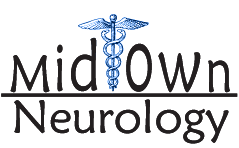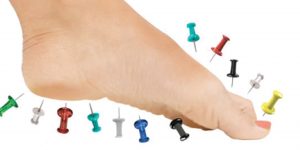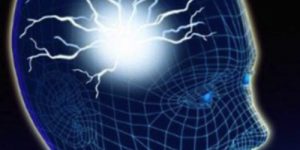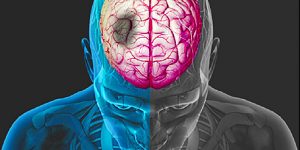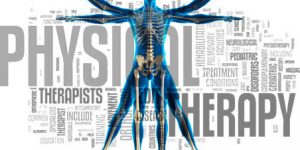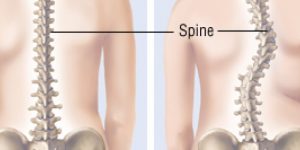DIZZINESS
The word “dizziness” can describe vertigo, a sense that the room or one’s head is spinning; imbalance, a sense that one might fall at any moment; or lightheadedness, a feeling that one is about to pass out. Occasionally, the same person may experience more than one type of dizziness.
EVALUATION
The providers at Midtown Neurology, P.C. will first obtain a history, asking first about the type of dizziness. In addition, we will ask about how long the symptoms have been present, how often and in what circumstances they occur, and any related complaints. The provider will then perform a neurological exam.
To measure the degree of imbalance objectively, we will often do a dynamic posturography test. This involves standing first on a stable platform and then on an unstable platform and measuring the amount of sway the patient experiences. We may also obtain a test to look at how well the inner ear is working by how well it controls eye movements. This test, called video nystagmography, or VNG, uses a set of goggles with a small video camera attached to measure how the eyes move in response to different head movements and postures. Also, if the dizziness looks as if there may be a component coming from the brain, and not the inner ear, a scan of the brain may be ordered – either a CT scan or an MRI scan, depending on what may be more appropriate.
DIAGNOSES
Benign paroxysmal positional vertigo
(BPPV) occurs when solid materials get caught in certain parts of the inner ear. This produces a sensation of the room spinning with certain head movements, such as rolling over in bed, and typically lasts 30 seconds or less. BPPV is very common after head injuries or may even occur spontaneously.
Menier’s disease occurs with abnormalities in the distribution of certain salts in the fluid of the middle ear. It is characterized by ringing in the ear and dizziness.
Vertigo often accompanies migraine headaches and may be present as an aura preceding the headaches or may occur during the headaches.
Acute vestibulitis often occurs after a cold or other upper respiratory infection and results in severe vertigo and nausea. It usually resolves over the space of a week or two.
A stroke or TIA involves loss of blood flow to a part of the brain. It can produce vertigo as a symptom. Usually there are other symptoms such as numbness or weakness on half the body or face, difficulty speaking or swallowing, or double vision.
Patients with Multiple sclerosis may experience vertigo. Often there is a history of other problems, such as weakness, spasticity, numbness, and visual loss that have occurred previously.
Certain brain tumors can present with vertigo as a symptom. These are usually slowly developing and there are often other symptoms such as facial weakness and hearing loss.
Imbalance
Imbalance often results from the brain not receiving information regarding where one’s legs are in space. Often, this is the result of damage to the nerves in the legs, or neuropathy, most commonly from diabetes. Damage to the spinal cord from spinal stenosis, multiple sclerosis, or even Vitamin B12 deficiency can also cause this problem.
Loss of other sensory systems, particularly visual problems and the inner ear (vestibular system) can also cause a loss of balance. Damage to the parts of the brain that integrate this information or to their connections often causes imbalance. In older individuals, it is not uncommon for multiple systems to be involved.
Lightheadedness
Orthostatic hypotension is one of the more common causes of lightheadedness. When one stands up, the blood pressure drops, and one experiences a feeling of lightheadedness. This often accompanies illnesses where one does not have adequate intake of fluids or is losing fluids through vomiting or diarrhea. Damage to the nerves that control the blood vessels in the legs from neuropathy (often in diabetes) is a frequent cause of orthostatic hypotension.
Lightheadedness can also be a result of heart problems, such as abnormal heart rhythms or problems with heart valves. It can also be seen with low blood sugar. Migraines often are accompanied by lightheadedness.
TREATMENTS
For benign paroxysmal positional vertigo, there is a set of head movements, called an Epley maneuver, which is remarkably effective. Our physical therapist is trained in this maneuver and works with patients to perform it properly. Other causes of vertigo often respond well to repeated exercises designed to diminish the intensity of the symptoms.
Balance problems are treated by physical therapy aimed at retraining the patient to make better use of those parts of the balance system that still function normally. Additionally, if a neuropathy is found, we look for potential causes, such as diabetes and vitamin deficiencies, that can be addressed and treated.
Lightheadedness is often best addressed initially by an internist or cardiologist. However, if there is an underlying neurological cause for orthostatic hypotension, we can address it with reductions in the dosages of blood pressure medications or with medications that actually increase the blood pressure.
Whatever the diagnosis and treatment, we at Midtown Neurology, P.C. will follow up with the patient to assure that our intervention produces a good response.
Call 404-653-0039 to schedule your consultation.
